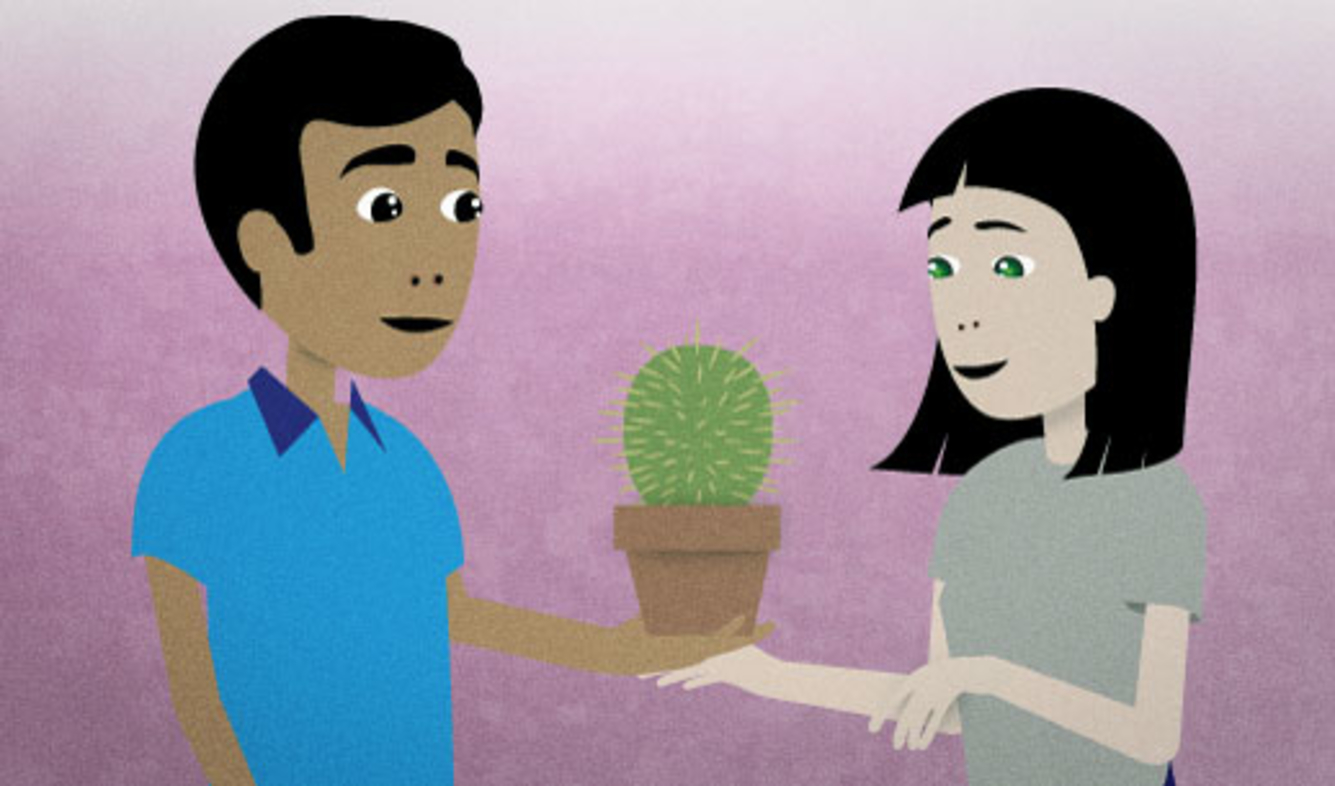“The good thing about it is it doesn't need to be watered that often.”
You bought your girlfriend a potted cactus for her office. You're explaining why you thought it was a good idea for a gift.
The good thing about it is it doesn't need to be watered that often.
Want Video and Sound? Follow us on YouTube

The good thing about (something) is (clause).
Use this expression when you want to talk about the good points of something:
The good thing about my job is that I get a lot of vacation time.
The good thing about living in a big city is that you can get everything you need within walking distance.
In grammatically correct, formal English, you should include "that" at the beginning of the clause:
The good thing about it is that it doesn't need to be watered that often.
In conversational spoken English, people often leave "that" out.
(something) needs to be (done)
Use "___ needs to be ___" to talk about work that someone needs to do:
It needs to be done soon.
English speakers use "be __" to avoid saying exactly who should do something. For example, you might say this this to an employee:
The files in this folder all need to be reviewed.
Instead of this:
You need to review the files in this folder.
The first one sounds softer and less direct.
Or you can say "___ needs to be ___" if you don't know who should be responsible:
That old building needs to be knocked down.
Use "___ doesn't need to be ___" when it's OK not to do something:
No, they don't need to be cooked. You can eat them just like that.
water (a plant)
When you give a plant water, it's called "watering" the plant.
Can you water the plants for me while I'm away?
You can also "water" a garden or lawn:
The best time to water your lawn is in the early morning.
